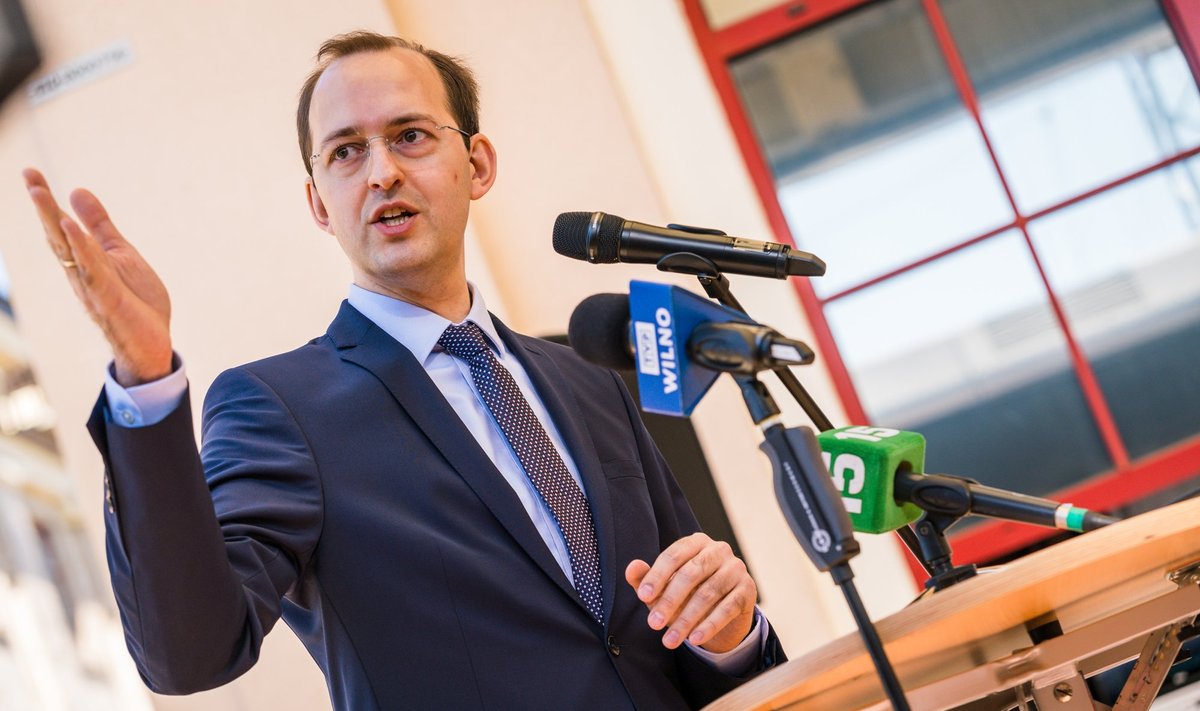“We want to create a system that makes it as convenient and easy as possible for people to move both within and between cities, so we will invest in many convenient and fast connections, expand the electric car fleet, as the number of these vehicles is already growing rapidly. Travelling patterns should also be affected by Rail Baltica with eco-friendly and high-speed trains competing against planes and cars in certain directions,” said Skuodis during the presentation of future works and visions of the Ministry of Transport and Communications.
At present, almost half (40 %) of Lithuanian families have two cars each, and transport costs reach EUR 1,670 per year per capita, or even 16 % of income, while the EU average is 13 %. We are also behind the EU average in terms of travel patterns: in cities, more than half of all trips are made by car, and within the country, such trips make up 90 %, while the EU average is 86 %. Air pollution related to these statistics is also worrying, with transport pollution making up a third of all pollution.
Given the current situation, the Ministry of Transport and Communications has set an objective to take measures so that by 2030 in major cities 29 % of travelling would be by foot (2 % more than in 2017), 13 % by bicycle (7 % more), almost one in five trips would be made by public transport (5 % more), and car trips would account for 41 % of all trips within the city.
“In order to achieve these goals, we plan to update the guidelines of the Sustainable Urban Mobility Plans, to develop the cycling infrastructure, to increase the number of charge points for electric cars, and to create convenient transport connections. We will make efforts so that by 2024 a person with one transport ticket could travel all over the country in all directions and by all means of transport,” says M. Skuodis.
The development of an eco-friendly system will focus on environmentally friendly means of transport. It is considered that in 2027, public road passenger transport, including taxis and shuttle services, will already use fuel only from renewable sources in metropolitan areas, and by 2029 as much as 80 % of buses will be electric or use alternative fuels.
By 2025, it is planned to expand the network of electric car charge points by 15 times.
Railways will also contribute to the reduction of air pollution: one of the busiest railway sections between Vilnius and Klaipėda is currently being electrified, as will be the railway line Rail Baltica, which will start operating in 2026.
Rail Baltica, which will provide quick access to Warsaw, Tallinn and Riga, should fundamentally change travel patterns between the Baltic States and Poland. Other connections will also be improved: new flights in a total of 110 directions should be restored and launched in three years, and the number of air passengers should increase more than twice, the cycling infrastructure will be expanded, the highways of Via Baltica, Utena, Vilnius–Kaunas are being reconstructed, the conditions for river navigation in the country are being created.
“We will also improve internet access, which also contributes to the development of the country's capabilities. Over the next three years, 90 % of families will have access to an internet connection of 100 Mbps, and 95 % of the population will be able to connect to 30 Mbps internet. Now these figures are 61 % and 69 %, respectively,” said the Minister.
The high-speed 5G network will also be developed. Next year it should start operating in Vilnius, and in 2023 in the 5 largest cities of the country.
It is estimated that more than EUR 3 billion will be invested in the country's transport system in the four years from 2021 to 2024.
